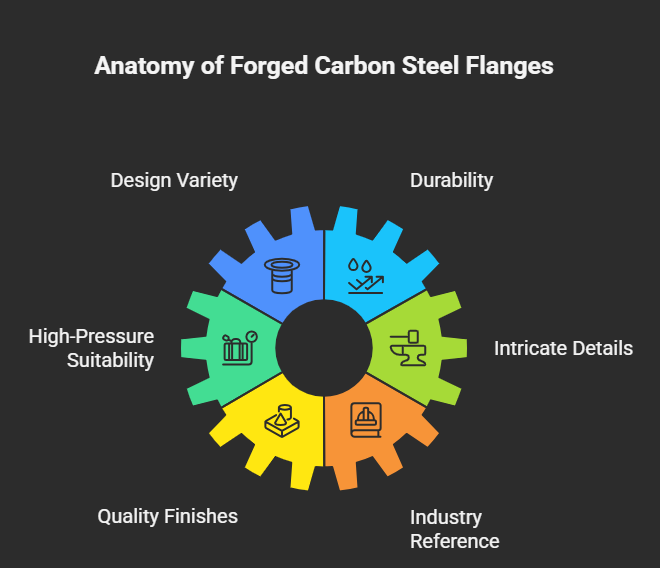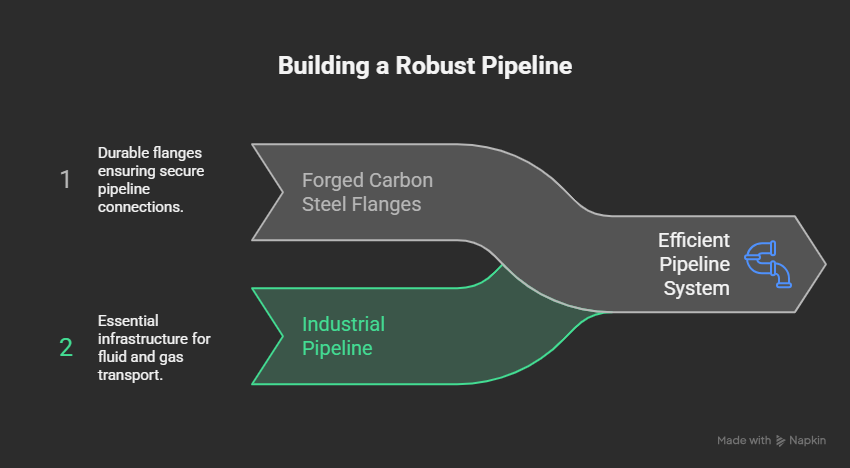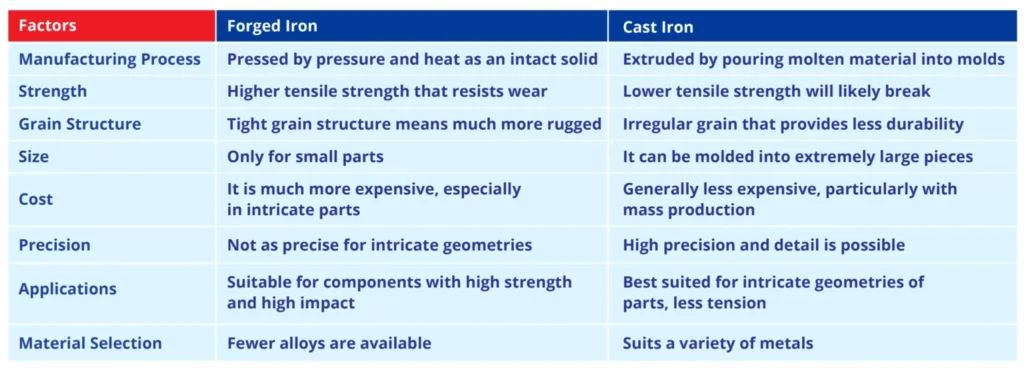Introduction
Forged carbon steel flanges are vital in industries that demand strength and reliability. They connect pipes, pumps, and valves securely. At Fortis Forge, we specialize in precision-engineered forged carbon steel flanges. These components meet international standards and support critical industrial operations worldwide.
This blog explores their features, benefits, applications, manufacturing process, and market insights. We also include charts and visuals to guide engineers, buyers, and project managers.
What Are Forged Carbon Steel Flanges?
Forged carbon steel flanges are mechanical connectors. They attach pipes, pumps, and valves for fluid flow management. Forging enhances the material’s grain structure, improving strength and durability.
Unlike cast flanges, forged flanges provide higher impact resistance. They also perform better under high pressure and temperature. This makes them ideal for demanding industries.
Key Properties of Forged Carbon Steel Flanges
Forged carbon steel flanges deliver multiple mechanical and operational advantages:
High strength: Forging increases resistance to pressure and stress.
Durability: Longer service life under harsh environments.
Leak prevention: Tight sealing ensures system safety.
Cost-effective: Lower lifecycle cost due to reduced maintenance.
Versatility: Available in various sizes, standards, and pressure ratings.
Types of Forged Carbon Steel Flanges
At Fortis Forge, we produce multiple flange types to meet varied industrial needs.
Weld Neck Flanges – Ideal for high-pressure applications.
Slip-On Flanges – Easy installation and cost-effective.
Blind Flanges – Seal pipe ends securely.
Socket Weld Flanges – Ensure strong internal connections.
Lap Joint Flanges – Used where frequent disassembly is required.
Threaded Flanges – Suitable for low-pressure systems.
Each type serves a specific function, offering flexibility for engineers.
Manufacturing Process of Forged Carbon Steel Flanges
Forging ensures maximum strength and durability. The typical process includes:
Raw material selection: High-quality carbon steel billets.
Heating: Billets heated to forging temperature.
Forging: Pressure applied to shape billets.
Heat treatment: Improves mechanical properties.
Machining: Precision cutting to final dimensions.
Inspection: Testing for quality and performance.
Applications of Forged Carbon Steel Flanges
Forged carbon steel flanges serve industries that demand durability and reliability.
Oil and Gas: Handle extreme pressure in pipelines.
Petrochemicals: Withstand aggressive chemicals.
Power Plants: Manage steam and high-temperature systems.
Marine Industry: Resist seawater corrosion.
Construction: Enable safe water and sewage systems.
Heavy Machinery: Provide secure hydraulic connections.
Advantages of Using Forged Carbon Steel Flanges
Using forged carbon steel flanges offers major operational advantages:
Strong resistance against cracking and breaking.
Reliable performance in high-pressure pipelines.
Easy availability in standard and customized designs.
Reduced leakage risks enhance safety.
Long service life lowers overall costs.

Standards and Certifications
At Fortis Forge, we follow international standards to ensure quality:
ANSI/ASME – American standards.
DIN – German standards.
BS – British standards.
JIS – Japanese standards.
EN – European standards.
Certified flanges ensure compatibility and safety in global projects.
Market Trends in Forged Carbon Steel Flanges
Global demand for forged carbon steel flanges continues to grow. This is driven by infrastructure, energy, and manufacturing expansion.
Key trends include:
Rising oil and gas exploration projects.
Increased demand for renewable energy systems.
Growth in chemical processing industries.
Expansion of global trade and shipping.


Quality Testing of Forged Carbon Steel Flanges
At Fortis Forge, every flange undergoes strict quality checks:
Ultrasonic testing for internal flaws.
Hydrostatic testing for leakage.
Dimensional inspection for accuracy.
Material certification for traceability.
These steps ensure consistent performance in demanding applications.

Why Choose Fortis Forge for Forged Carbon Steel Flanges?
Choosing the right supplier ensures long-term success. Fortis Forge provides:
Advanced forging facilities.
Wide product range.
Global compliance with industry standards.
Customized solutions for unique projects.
Timely delivery across markets.
Our expertise ensures every flange meets performance and safety expectations.
Conclusion
Forged carbon steel flanges are essential for industrial reliability. Their strength, durability, and cost-effectiveness make them the preferred choice worldwide. With growing demand, industries require trusted suppliers.
Fortis Forge continues to lead by providing high-quality forged carbon steel flanges. We ensure compliance, safety, and durability in every project.
For reliable industrial connections, choose Fortis Forge – your partner in strength and precision.
